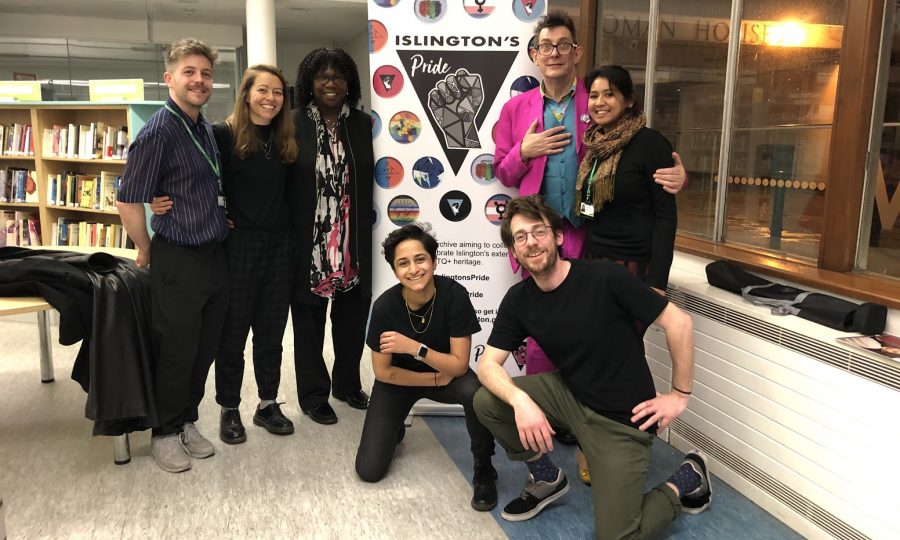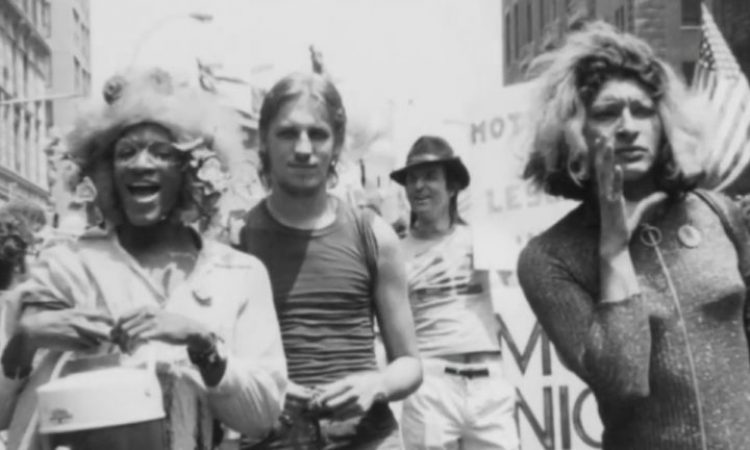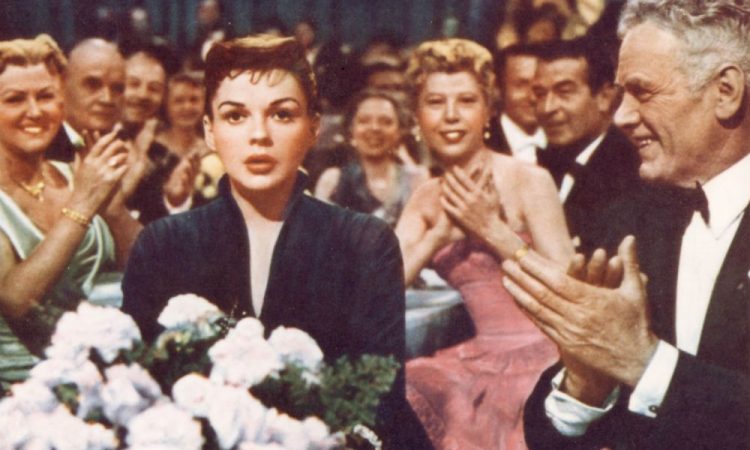Islington’s Pride: Our heritage, our future

Islington’s Pride, is Islington’s LGBT Archive project, funded by the National Lottery Heritage Fund. For over three years the council’s Heritage Team has been working to collect, preserve and celebrate the rich queer heritage of Islington. Project Manager Seán McGovern gave us an update and insight into the importance of the project, tells us about their digital trail and why, more than ever, we need to work to preserve our at-risk heritage in these unprecedented times.
Stonewall, 1969
The events of the Stonewall Uprising are both known and apocryphal. In June of 1969, the Stonewall Inn in New York City, a bar frequented by trans people, gender non-conforming folk and a variety of gay men and women, was raided by police. LGBTQ people were used to police harassment. However, a not-uncommon police raid did not go as planned when the patrons fought back. We often joke about who “threw the first brick at Stonewall” but one thing for certain is, like all fights for equality, it began with the most marginalised people saying enough is enough. Stormé DeLarverie, Marsha P. Johnson, Sylvia Rivera: women of colour, butch and transgendered, were undoubtedly the instrumental figures in ushering in the rights we have today.

Marsha P Johnson (Left) and Sylvia Rivera (Right) credit: Netflix
Judy Garland
The apocryphal part is that the patrons of the bar were particularly on edge that night because only one day earlier was the funeral of Judy Garland, a figure adored by the LGBTQ community whose legacy continues to this day. Selfishly, we can at least be grateful that this momentous event took place in June and not January, as the summer months are synonymous with LGBTQ Pride parades all over the world. In many countries, the parades are still demonstrations of resistance, and we must rightly recognise them as such. Over the last 50 years in the UK, we recognise June as a time of pride and protest: celebrations of visibility, our heritage, and those who fought for our rights.

Judy Garland in A Star Is Born (1954) credit: Warner Brothers
Islington
Unfortunately, for reasons which are well known to us, 2020 is an exceptional year. For those who might not know Islington’s Pride, we’re a major project funded by the National Lottery Heritage Fund and have been collecting, preserving and celebrating the rich queer heritage of the borough, which we can confidently call the birthplace of the movement in the UK. From the Gay Liberation Front to LGBTQ+ Pride, the terminology has adapted, but the goals and ambitions have not. Islington’s Pride has been honouring the movement of the past and acknowledging the work in the present that still needs to be done for the future.
Digital landscape
In July of this year Islington’s Pride were planning to launch our digital landscape. This is a map and walking tour from each end of the borough, accessible on both a mobile device or computer, that details the extremely rich queer heritage of Islington. Unfortunately, and understandably, we won’t be able to do this in July. Instead refocusing towards February 2021, marking the beginning of LGBT History Month.
This is how it will work. Scattered across the borough will be 50 eye-catching plaques, with a scannable QR code that takes you directly to fascinating and accessible information about each point’s importance in our LGBTQ+ heritage. Maybe you’re standing in front of the former London Lesbian and Gay Centre, or the home of an important figure in the movement? Maybe it’s the home of a politician, a performer, writer or activist? Maybe it was a bookshop, or a writers’ collective, or a sex shop, or a public toilet! Or maybe it was a great lesbian nightclub that also happened to be the same place where Vladamir Lenin hosted the 1905 Russian Social Democratic Labour Party Congress? This is Islington, after all!
LGBTQ+ heritage
There will be over 150 pins on our digital trail, with 50 physical markers indicating points of special important heritage. And it won’t be just information. The pins will connect you to oral histories of over 20 important figures, whose stories and contributions affords a further richness to our landscape. The map links to important items in our archive, which we hope that you will be able to come and explore in person at the Islington Local History Centre ( 245 St. John’s Street). With all these features, we hope to amaze and astound you with just how much LGBTQ+ heritage there is across the borough.
But most importantly of all, to dive into this heritage we need it to be easy and accessible, which is why we’re working with Error, a design agency who create human-centred websites and apps. The trail itself won’t be an app, it won’t be anything you have to download, and it can be used on the street with your smartphone in front of one of the signs, or at home on your own computer. We’re creating something that people of all ages and backgrounds from across the borough can engage with. Something you can do with your friends, your family, by yourself in person or at home. We hope this will be something we can all share when the time is right and safe to do so.
So while we wish we could be celebrating all this in July, we’re moving our launch to February 2021, to kick off LGBT History Month with all the appropriate fuss it deserves. We hope you’ll join us then when we raise a glass to the queer heritage of our past, present and our futures.
More Local History
- Barnsbury and Caledonian Road
- Archway and Tufnell Park
- Nag’s Head and Holloway
- Angel an Pentonville
- Bunhill and St Luke’s (Finsbury)
- Finsbury Park and Stroud Green
- Highbury
- Clerkenwell
- Islington Central and Canonbury
- Newington Green
- Victoria Cross memorial stones
- Streets with a story
- Islington during the First World War
- Islington and Holloway Fire Stations
- Society of Genealogists
- D-Day (1944-2019)
- Highbury Corner V-1 bomb
- Italians in Islington
- Islington on the Home Front during the Second World War
- Islington’s Pride: Our heritage, our future
- Islington as a Place of Refuge
- Barging Through Islington: 200 Years of the Regent’s Canal
- A short history of waste and recycling in Islington
- Gay Liberation Front at 50
